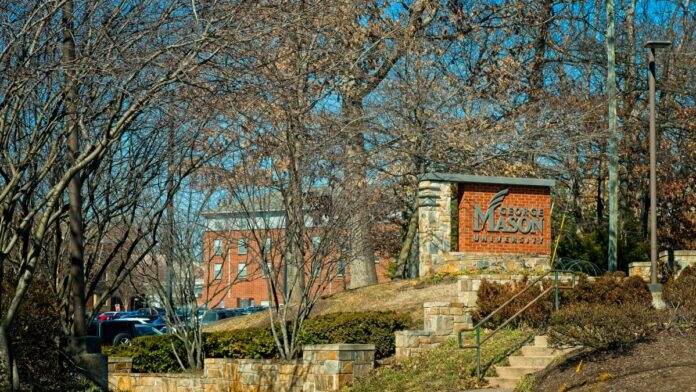
A George Mason University freshman was arrested by the FBI and charged with distributing information about weapons of mass destruction online, after prosecutors say he plotted a mass-casualty attack against people at the Israeli consulate in New York.
Abdullah Ezzeldin Taha Mohamed Hassan, an 18-year old student living in Falls Church, Virginia, operated “several pro-ISIS and Al Qaeda accounts that promoted violence against Jews,” court documents said. Those documents allege Hassan tried to recruit others for a planned attack, sharing information about explosives and guns.
The FBI began investigating Hassan in early May, after the Fairfax County Police Department shared an anonymous tip that Hassan was engaging in “radical and terrorist-leaning behavior” on X.
Hassan, an Egyptian national, created at least three X accounts and used them to spread extremist ideology, prosecutors said. His posts included one calling Osama bin Laden his “idolo,” and several others referring to martyrdom and jihad.
In August, Hassan shared an AI summary of one of those X accounts.
“Based on our AI agent’s analysis of your tweets, you are a young, radical Islamist extremist who is obsessed with jihad and violence against perceived enemies. Your tweets suggest a deep-seated hatred and intolerance towards those of other faiths, particularly Jews,” the summary read, according to court documents.
Hassan posted the summary with an Arabic word that means “praise be to God,” according to the FBI.
An anonymous FBI source reached out to Hassan, acting sympathetic to his ideas and eventually moving from social media to Telegram, an encrypted messaging platform.
In those messages, Hassan shared pro-ISIS propaganda, videos that called for the killing of Jews, and videos explaining how to make bombs, prosecutors said. He also advocated for attacks on government buildings, court documents allege.
Hassan spent over a month attempting to recruit the FBI source to help conduct a mass casualty attack, eventually deciding to target the Consulate General of Israel in New York.
Between Nov. 22 and Dec. 4, Hassan shared specific information and links about how to create a bomb, how to escape from the U.S. to a country with no extradition laws after the attack, whether to use a bomb or a gun, and how to livestream the attack to share footage with the ISIS media department.
All of those actions are violations of U.S. laws against distributing information related to “explosives, destructive devices, and weapons of mass destruction in furtherance of the commission of a federal crime of violence,” and “first-degree murder of internationally protected persons,” court documents say.
The criminal complaint against Hassan was filed on Dec. 16 in Alexandria, Virginia.
GMU released a statement about campus safety on Thursday night, a few days after Hassan’s charges became public.
“I am writing to update you on a new situation we are managing relative to a student who was recently arrested by the FBI, as it has caused security concerns among some members of the community that I want to address,” the statement said. “George Mason University continues to take enhanced precautions to maintain a safe and secure university community in light of the recent FBI arrest of one of its students.”
“Although the student did not live on campus, he has been barred from entering university property. As criminal proceedings progress, the university will take appropriate action on student code of conduct violations,” the statement said.
The statement assured students that the university would protect their safety, and laid out safety measures taken to “form a protective web around the university.”
GMU confirmed to News4 that Hassan is a student there, “majoring in information technology.”
News4 sends breaking news stories by email. Go here to sign up to get breaking news alerts in your inbox.
“George Mason University continues to take enhanced precautions to maintain a safe and secure university community in light of the recent FBI arrest of one of its students,” George Mason’s Vice President and Chief Brand Officer Paul Allvin said in a statement. “The arrest, which the university learned of on Tuesday, December 17, so far appears to have no connection to an earlier police action involving two George Mason students whose home was searched in November.”
“Although the student did not live on campus, he has been barred from entering university property. As criminal proceedings progress, the university will take appropriate action on student code of conduct violations.”
